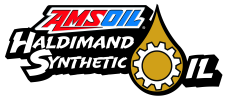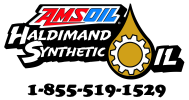Haldimand Synthetic Oil Motor Oil Properties Guide
Here are the Critical Functions of Engine Oil
The primary function of the engine oil is to lubricate moving parts. The oil forms a hydrodynamic film between metal surfaces, preventing metal-to-metal contact and reducing friction.
Explanation of Dynamic viscosity and kinematic viscosity
There are Benefits in Understanding Kinematic viscosity and Dynamic or Absolute viscosity
Combat the Effects of Cold Temperatures by using Synthetic Oil
Vehicle maintenance is an important part of preparing for winter months. Extreme winter weather can make breakdowns especially dangerous, and most people aren't aware of the effect cold weather has on conventional Lubricants.
AMSOIL Synthetic Oils Shattering the Industry Standard
A New Level of Protection and Performance on the Horizon. The new Signature Series, XL and OE formulations launching this fall place our passenger car motor oil (PCMO) line ahead of the game.
Conventional lubricants vs Synthetic lubricants
Is Synthetic Oil Better For My Car? It is generally accepted that synthetics outperform conventional oils, but many people don't understand why. The differences begin at a molecular level.
How does Motor Oil Become Contaminated?
How does motor oil become contaminated? Commonly through abrasives, and combustion by-products.
The Role of Additives in Motor Oil
Passenger car motor oils, the base oil makes up 70 to 80 percent of the final product; additives comprise the other 20 to 30 percent.





 Canada
Canada United States
United States